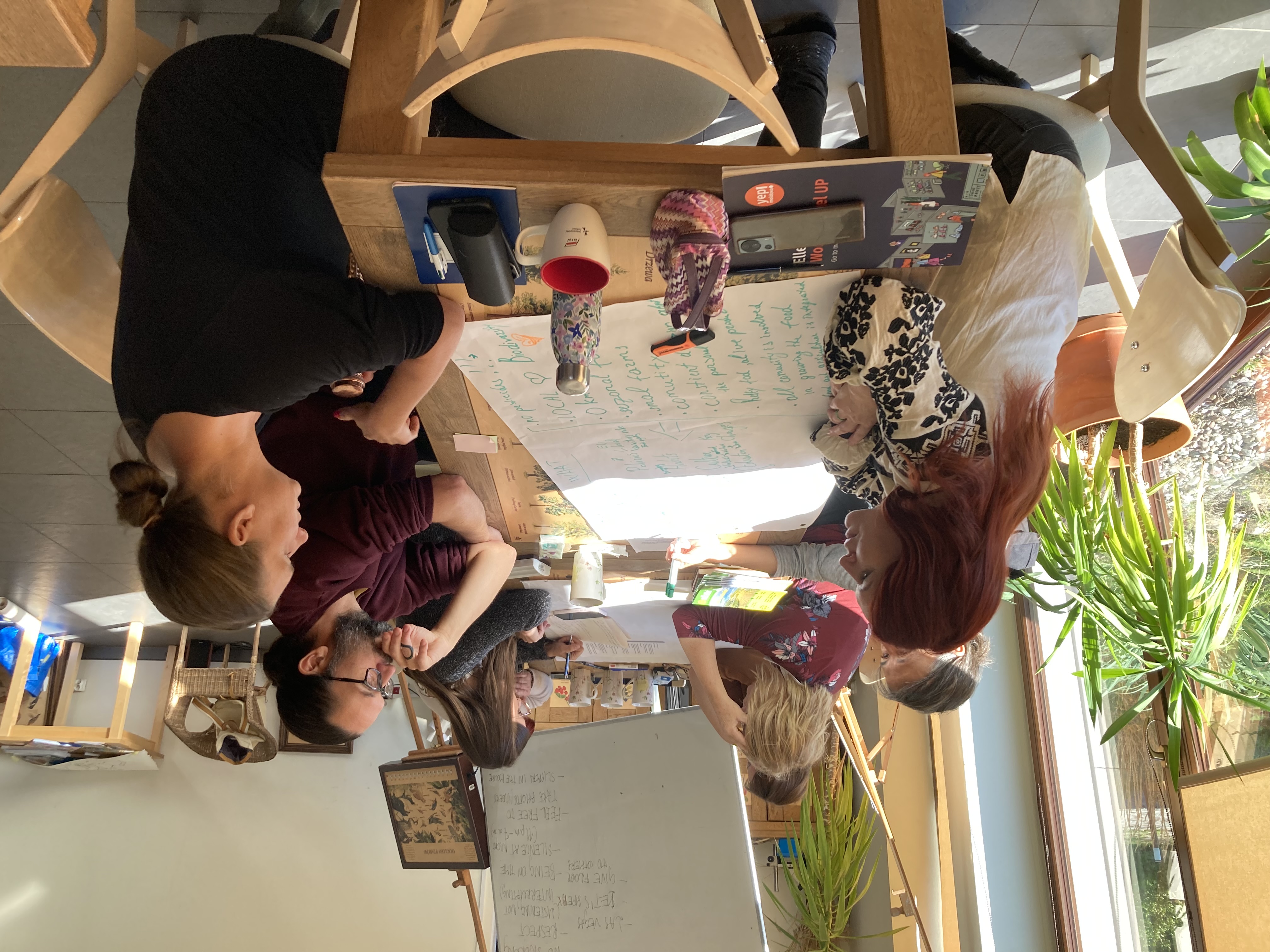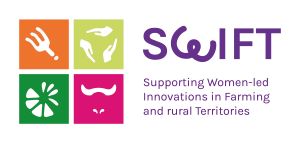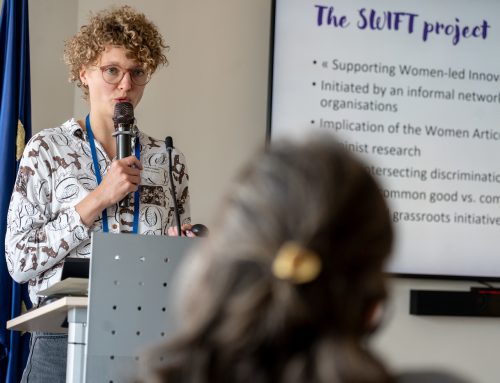Text by Ruta Spiewak
Pictures by Elwira Wilczynska and Agnieszka Dybowska
Almost thirty women and two men from eight countries, three intensive days at the Ecological Folk University, meetings, workshops, and communal singing – behind us is the first gathering of its kind for women from Central and Eastern Europe who are committed to the principles of agroecology. Among us were farmers, activists, researchers, artists, often people combining many of these roles. Women came from the Czech Republic, Slovakia, Georgia, Poland, Moldova, Ukraine, as well as Belgium and Spain.
In the opinion of the organizers, representing the Institute of Rural and Agricultural Development of the Polish Academy of Sciences and the Agro-Perma-Lab Foundation, these were incredibly busy, intense, and emotional days. Each person brought not only local delicacies but, more importantly, a wealth of experiences and emotions. We were joined by Slovak highland shepherds, Moldovan and Czech microgreens and vegetable preserves producers, a Polish horse breeder, a wine and egg producer, and activists from organizations working broadly in the field of agroecology.
In breaks from work, there were stories about change and maturing into it – moving from the city to the countryside or to another country, stories about war, the beauty of nature, daily exhaustion, and the ignorance of politicians.
We began our work by imagining the ideal future of the food system. Using the “Backcasting” methodology, we tried to exercise our imagination and describe what our dream food system would look like in 2050 and what actions we need to take to achieve that goal.

After the imagination exercises, we visited Agnieszka Makowska at the Zielona Rzodkiewka (Green Radish) organic farm, located 15 minutes from the EUL, to learn about the challenges faced by a vegetable producer trying to implement the principles of agroecology.
The rest of Saturday and the first part of Sunday were spent in workshops led by Maria Świetlik, focused on building skills in advocacy, particularly for agroecological farmers and activists. Based on specific principles, we created plans and strategies for effective communication with politicians and other actors who influence the functioning of the food system. Since many women take on various roles in many areas, often forgetting about their own well-being, we also managed to discuss how to find time for ourselves in activism and daily busyness.
Communal singing is something organic to people of all times and cultures. People have always sung while working, during holidays, in times of sorrow, and joy. Although there is a vast number of wonderful traditional songs, sometimes there is a lack of those that describe the present, relating to our experiences. Starting from this premise, Katarzyna Jackowska-Enemuo guided us through the process of first creating the lyrics for a song and then composing the music. The result was a four-verse song with the refrain: So what do I do… So what do we do…
Thanks to funds from the SWIFT Horizon Europe project supplemented by money from the Visegrad Funds and Boell Foundtion, people with a shared sensibility gathered together, who perhaps would never have come together in this way without this opportunity. This meeting is just the beginning of the process of integration and joint actions of women from Central and Eastern Europe engaged in the ideas of agroecology.




